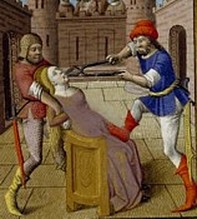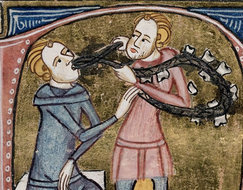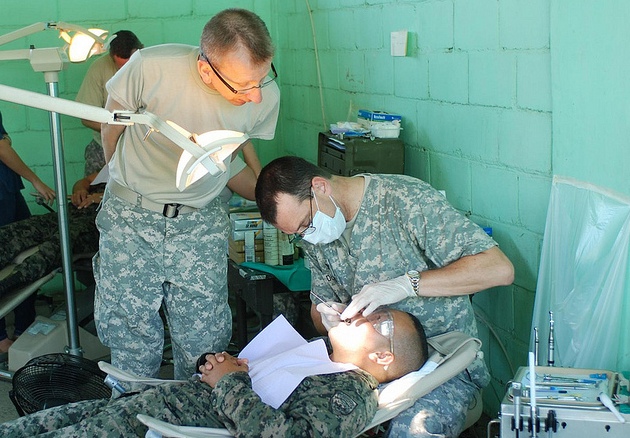I have been casting my net wide, and working on the modern era - looking at 20th and even the 21st century. While doing so, I came across some remarkable research that surprised me - and got me thinking.
I was looking at the incidence of battlefield evacuations for the US military, and at the financial costs involved in an attempt to better understand the expenditure of western involvement in Iraq since 2003. I had not expected to learn the cause of 10% of all modern battlefield evacuations: dental emergencies. In Iraq, the cost of dental disease worked at just over $20m per year.
It turns out that research into the impact of dental health - categorised by the Department of Defense Dental Classification into System into forty seven different categories - is a major focus of the US military at the moment. Intensive work is going into R&D to find ways to reduce the impact of chronic gum disease and oral hygiene. You can download the report by clicking here.
Anyway, the upshot is that I've been looking at teeth and dentists in the Middle Ages and in Byzantium - not something that would have crossed my mind beforehand. I've been looking at how a good set of teeth were idealised - like Michael Psellos, who wrote of those of his daughter being 'white as snow, shimmering like crystals in their pearliness', or one member of the imperial family in Constantinople who lost teeth regularly despite cleaning them diligently - but was particularly when it came to choosing suitable replacements to hide the gaps (he fond that a certain type of resin worked well).
My wanderings have taken me across 11th century guidebooks on women's cosmetics, which include advice on how to whiten teeth (make a marble paste; have a good glass of wine; then chew parsley) to Hildegard of Bingen explaining the best kind to keep the mouth fresh.
 That has got to hurt...
That has got to hurt... Like the US dentists, Valesco recognized that there were many different kinds of disease affecting the gums and the teeth - thirteen in his reckoning. It was essential, he wrote, to come up with good and proper way to stop tooth decay - and not the crackpot remedies that seem to be offered on every street corner.
As my own dentist would tell me today, keeping the gums healthy and the teeth clean is important. It's a message that has been given loud and clear for centuries - as I'll tell him next time I see him.
I'll stay quiet, though, about the poem by the medieval Greek poem by Theodore Prodromos in case that annoys him.
 Seriously?
Seriously? 
 RSS Feed
RSS Feed